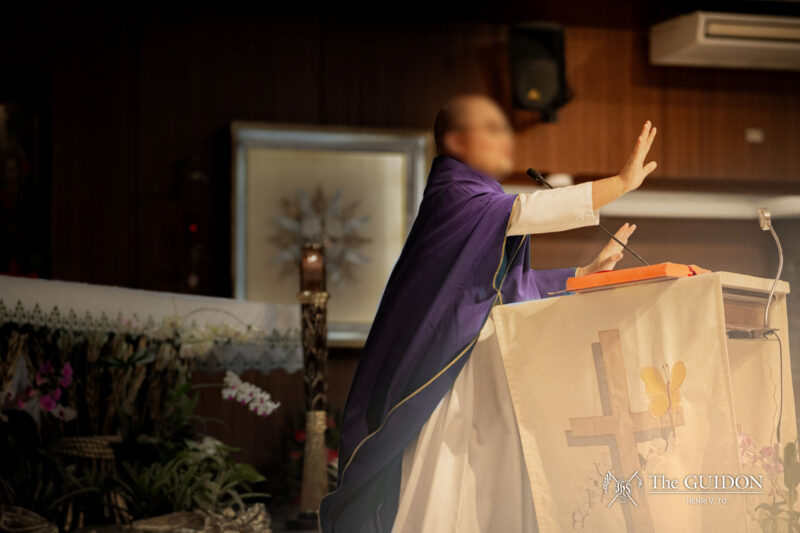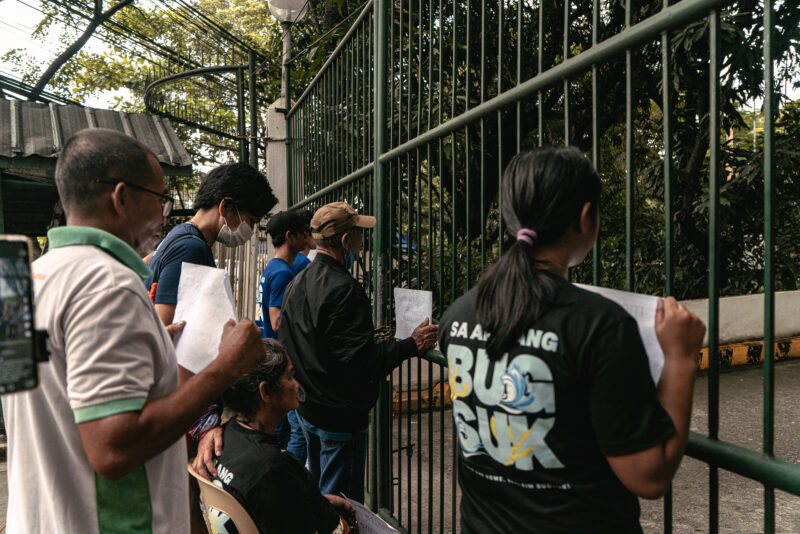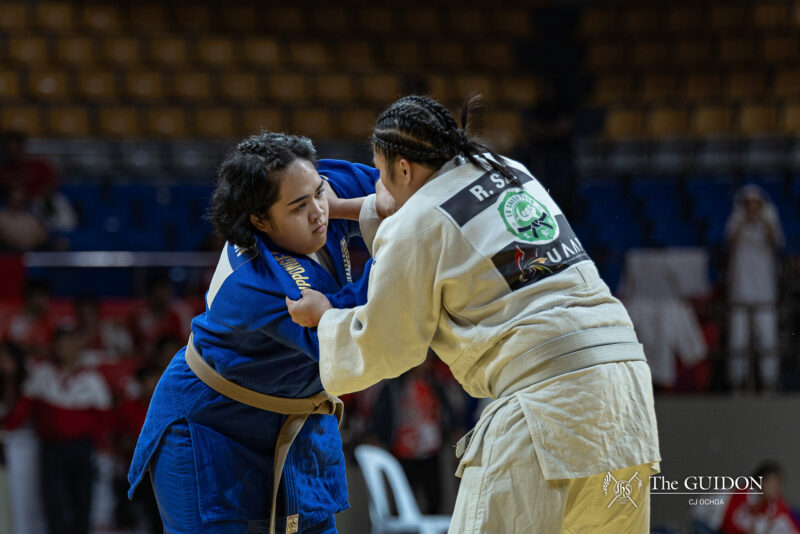The pulsing vein on Michael Coroza’s temple indicated that the discussion could become nasty. Before things became any graver, another panelist—Ophelia DImalanta—interjected, and told the fellow: “We didn’t misread your work. Your text misled us.”
We never saw the fellow again.
As far as writing workshops are concerned, getting in is just the first step. Next would be the harsh comments and criticism by some of the best poets and writers in the Philippines. The writer could then choose to take the blows—or put down the pen.
Nerves
But my story began months before that.
“I’m sure you’ll get accepted,” a friend told me as I nervously handed in three of my so-called ‘best’ works for the 10th UST National Writers Workshop. I believed her—until the secretary said, “Wow, a lot of people submitted this year.”
Despite the competition and seven weeks of waiting for rejection I was accepted. First came the excitement—only 18 writers got in—then came the dread.
The firing squad
On the 4th of May, with the sky threatening to bring a downpour, I rushed towards the St. Raymund’s Building in the University of Santo Tomas (UST). I entered the room and saw three empty seats for the panelists.
Five minutes after, a man in a gray shirt and black cufflinks walked in. “Hello, fellows. How are you doing?” It was Al Dimalanta, panelist and overall person-in-charge of the workshop. Nobody could return the greeting. We were nervously reading the Filipino poems, which were the first on the chopping board.
Filipino Assistant Professor Coroza arrived midway through our discussions, stunning us fellows to silence. Al had said, “Magdasal kayo na hindi dumating si Mike (Pray that Mike doesn’t arrive).” It was in jest of how Coroza seemed to be one of the stricter panelists.
Generation face-off
The succeeding days, while less eventful, allowed us to interact with Filipino writers and poets like Cirilo Bautista, Ph.D., Lourd De Veyra, Eros Atalia, and UST’s Writer-in-Residence and Al’s mother, Ophelia Dimalanta, Ph.D.
This is the biggest advantage of workshops. “The fellows get comments from writers who may be trusted to critique their works,” says Dimalanta. The bonding between the younger and older generations, she adds, is a bonus.
“I expected to rub elbows with people whose books I keep beside my bed,” says Petra Magno, who attended the 9th Iyas Creative Writing Workshop and the 48th Dumaguete National Writers Workshop. “And I did—literally. J. Neil Garcia sat beside me during sessions.”
These workshops also influence established writers like Lawrence Ypil, the Palanca-winning English instructor and panelist to workshops like the Ateneo National Writers Workshop and UP Tacloban Writers Workshop. “Sometimes I’m eternally jealous—when I encounter a work by a young writer—that I end up attempting to imitate or build on what he is doing,” he says.
Filipino writers who do not have wide readerships yet find publicity in workshops as well. “Filipino writers are not like rock stars who are heard on the radio,” says Al. “You have to purposely look for them. These workshops provide the awareness of these works.”
Humanity with a bottle of beer
An open secret of workshops is the after-sprees. For co-fellow Nico Asprer, who is taking his masters in Literary Cultural Studies, this allowed him to get to know the writer, amidst bottles of Pale Pilsen and San Miguel Lite. “When you know what they’re into, you realize what they’re trying to write and you try to understand them with that,” he says.
Carlomar Daoana, panelist, poet, and a fellow of past workshops, agrees. “The fellowship is like an Alcoholics Anonymous,” he says. “When you begin writing, there’s this group of people that you’re not afraid to show your work to.”
We went to Laguna to unwind after a grueling four days of productive criticism. As the others belched out tunes of the ‘90s on the karaoke machine, co-fellow Isa Yap and I got to talk to Dimalanta, without the formal workshop setting. It was initially for an interview, but—to escape the shots of lambanog being passed around—our talk spanned topics from Philippine literature to her personal life.
Isa says this made her realize just how human writers are. “Before, they seem unattainable because they’re published and seem so up there,” she says. “But, when you talk to them, it’s so easy to have a conversation.”
I have to agree. Dimalanta even cracked a few jokes and laughed at some of mine—a feat I never thought could happen outside my literary dreams.
Petra had the same experience. In the Iyas Workshop, was injured while playing tag with a co-fellow in a dark corridor. “I ran straight into a doorframe,” she says. “Marjorie Evasco [a Filipino poet and workshop panelist] called an ambulance for me and I ended up with six stitches right down the middle of my forehead.”
Writers’ wonderland
On the ride home, I realized that only one of my short stories was critiqued. One would think that I didn’t learn a lot. That wasn’t the case. The workshop experience was the lesson itself.
“This is the only time young writers will ever have to be able to write and to talk about writing with people who care about writing,” says Petra, echoing Evasco’s definition of the workshop culture. “When you leave and return to the world, the world will tell you, ‘Your time is not your own.’ This is precious time given to you…to do what you love to do.”
While writers can gain the confidence to publish their work, the more traditional criticism can also either stifle experimentation or quench self-esteem, says Isa.
Quoting her teacher and poet Mookie Katigbak, Isa says the key is conviction. “You have to choose who to listen to and stick to your guns because in the end, you’re still going to decide what you’re going to write.”
Though it’s possible that not all fellows will have a serious writing career, the time we spent in the workshop was indeed precious. I flipped through the manuscript with dedications from my co-fellows. The shortest but most striking reads, “Keep writing!”
Maybe I will.






